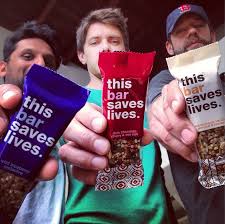Home
About Us
Modeling Social Behavior Grant Program
by: Michael SaundersThe National Institutes of Health, more commonly referred to as NIH, is a federal government agency operating within the United States Department of Health and Human Services that is fundamentally responsible for encouraging and supporting the country's biomedical and health-related research studies.
|
|
The grants and initiatives of the NIH are all geared towards the attainment of its primary agency mission which is "to seek fundamental knowledge about the nature and behavior of living systems and the application of that knowledge to enhance health, lengthen life, and reduce the burdens of illness and disability."
In keeping with this mission, the National Institutes of Health has collaborated with the National Institute of General Medical Sciences (NIGMS) and the National Institute of Mental Health (NIMH) in order to establish the Modeling Social Behavior Grant Program wherein they intend to seek applications for the development and evaluation of innovative theories, as well as computational, mathematical, and engineering approaches that could better our understanding of a human being's social behavior.
The research studies that will be conducted under this program will focus on examining phenomena at multiple scales in an attempt to address the emergence of collective behaviors that spring from individual elements of a system.
(continued...)
Modeling Social Behavior Grant Program
Page 2
About The Author
Michael Saunders is an editor of TopGovernmentGrants.com one the the most comprehensive Websites offering information on government grants and federal government programs. He also maintains Websites providing resources on environmental grants and grants for youth programs. |
Additional Resources
category - Health Grants
National Science Foundation's Smart Health and Wellbeing Program
Pilot Surveillance System for High Impact/Low Prevalence Congenital and Inherited Conditions Program
Basic Cancer Research in Cancer Health Disparities Grant Program
Effects of Adolescent Binge Drinking on Brain Development
Follow @topgovtgrant
Social Entrepreneurship
Spotlight
A Bar That Saves Children’s Lives

Ryan Devlin, Todd Grinnell and Ravi Patel have traveled to Africa on a humanitarian trip a few years back, encountering children suffering from severe malnutrition get healthy through Plumpy’Nut®.
